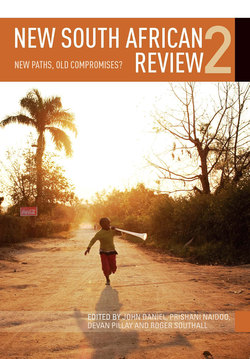Читать книгу New South African Review 2 - Paul Hoffman - Страница 28
На сайте Литреса книга снята с продажи.
THE SITUATION IN ZIMBABWE
ОглавлениеRobert Mugabe was clearly defeated by Morgan Tsvangirai of the Movement for Democratic Change (MDC) in the presidential elections of March 2008. Then, in June 2008, the world witnessed a second stolen election. After a five-week delay in announcing the result of the first ballot (a delay prompted by a traumatised Zanu PF’s search for an alternative to the constitutional option of accepting defeat and transferring power), Tsvangirai was deemed to have won the most votes whilst failing to secure an overall majority, thus necessitating a run-off against Mugabe. Although this episode followed a familiar postcolonial narrative in which oppositions win the vote only to lose the count, this was a particularly egregious example of electoral malpractice. The second poll, on 27 June, was held against the backdrop of an orchestrated campaign of state terror entailing the murder, rape, abduction, and torture of opposition activists and supporters. Indeed, the country witnessed an accelerating decline into something approaching naked fascism, given the scale of the violence meted out by state-sponsored militias to those deemed to have voted for the opposition. Mugabe himself confirmed this trend when he asked rhetorically: ‘How can an X on a ballot paper compete with a gun?’ and declared that ‘only God who appointed me will remove me’ (AFP, 2008), statements providing a blend of Hitler (and Mugabe has even described himself as ‘Hitler tenfold’ (Mugabe, 2003) Mao-Zedong and Charles I of England.
The ferocity of this state-sponsored assault on the MDC and its support base led to Tsvangirai’s withdrawal from the second poll and to Mugabe’s being re-elected by default, an outcome which only intensified the country’s political crisis. In September 2008, a global political agreement (GPA) – brokered by Thabo Mbeki – was signed by Mugabe and Tsvangirai and on 2 March 2009, a government of national unity was formed. Although Mugabe was compelled to make some concessions as a result of the GPA, he effectively retained control of the state and has continued to govern in much the same way as before. In short, while the GPA has brought some respite from the worst excesses of state terror and restored some normality to the functioning of the economy and its financial institutions, it has not transformed the political culture of Zimbabwe nor fundamentally altered its political dynamics, and attention has inevitably turned southwards from this depressing spectacle towards the regional hegemon. The question now posed with increasing frequency is whether Zimbabwe’s today is likely to become South Africa’s tomorrow.
